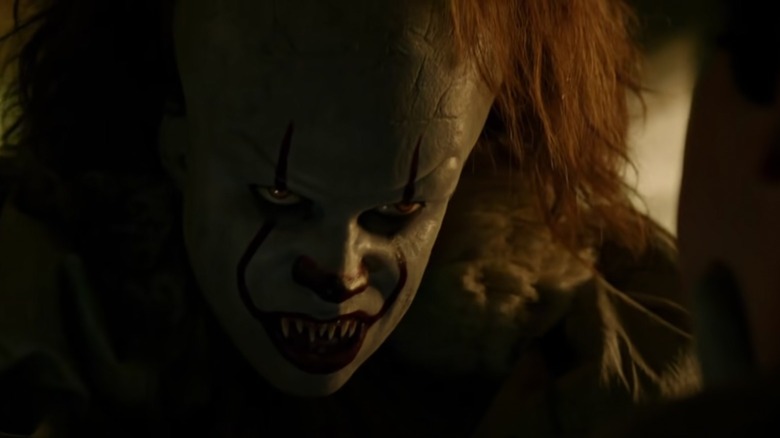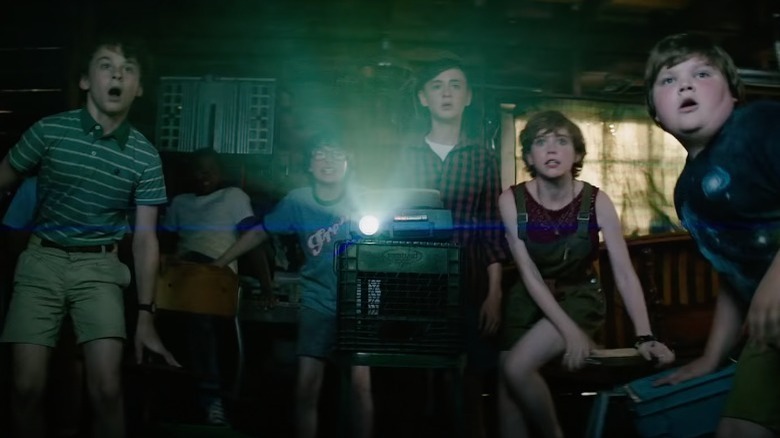Why The It Reboot Took So Long To Make
The phenomenon of Stephen King's novel, "It," has been fueling nightmares with visions of Pennywise the Dancing Clown since he released the book in the late '80s. The terrifying tale got its first on-screen adaptation with the 1990 mini-series starring Tim Curry as the titular clown. But the marquee production is clearly Andy Muschietti's two-part film series. 2017's "It" ended up being the highest-grossing horror movie of all time. And while Muschietti strayed from the source material a few times, the film totally captured the characters and overall spooky feel of the film.
Muschietti finished the story with 2019's "It: Chapter Two" with the grown-up Losers Club facing Pennywise once more. Bill Skarsgård was a worthy follow-up to Curry's legendary take on Pennywise, despite their differing approaches. And even though the franchise is now one of the biggest successes in the horror realm, it wasn't an easy road to get "It" from the novel to the big screen.
It took nearly a decade to hit the big screen
While "It" didn't premiere until 2017, the idea for the film began back in 2009, as pointed out by Screen Rant. But the wheels didn't start churning until 2012, when Cary Fukunaga was selected to direct and Will Poulter was picked to be Pennywise. The film was set to start filming in 2016 until creative differences led to Fukunaga abandoning the project. He had written a script with plans to split the "It" story into two films. Fukunaga told Variety that he was trying to make an "unconventional horror film" while the studio wanted him to make a "much more inoffensive, conventional script."
To Fukunaga's pleasure, once he left the project, the studio scrapped his "It" script and started over. New Lion replaced the director with Muschietti and his script and tapped Skarsgård as the lead. And the rest is history — the film went on to break records in the box office while also becoming a critical success among Stephen King fans.

